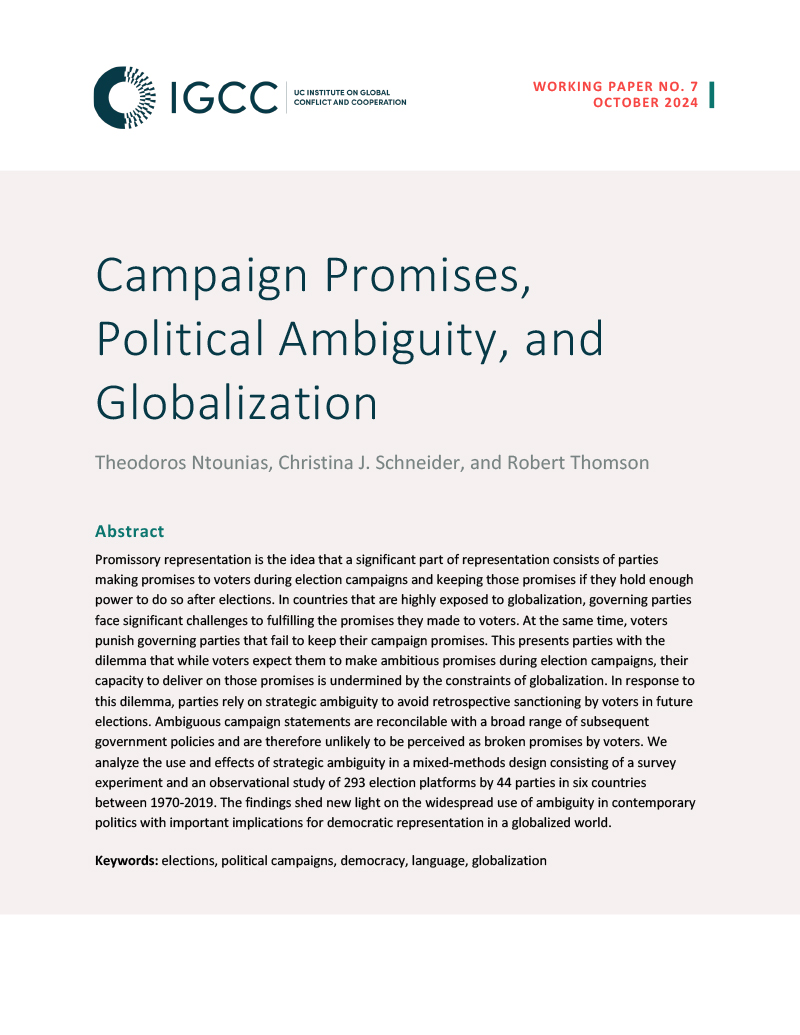Campaign Promises, Political Ambiguity, and Globalization

In this working paper, co-authors Theodoros Ntounias, Christina Schneider, and Robert Thomson shed new light on the widespread use of ambiguity in contemporary politics, with important implications for democratic representation in a globalized world.
DownloadPromissory representation is the idea that a significant part of representation consists of parties making promises to voters during election campaigns and keeping those promises if they hold enough power to do so after elections. In countries that are highly exposed to globalization, governing parties face significant challenges to fulfilling the promises they made to voters. At the same time, voters punish governing parties that fail to keep their campaign promises. This presents parties with the dilemma that while voters expect them to make ambitious promises during election campaigns, their capacity to deliver on those promises is undermined by the constraints of globalization. In response to this dilemma, parties rely on strategic ambiguity to avoid retrospective sanctioning by voters in future elections. Ambiguous campaign statements are reconcilable with a broad range of subsequent government policies and are therefore unlikely to be perceived as broken promises by voters.
In this working paper, Theodoros Ntounias, a PhD candidate at UC San Diego, Christina Schneider, a professor at UC San Diego, and Robert Thomson, a professor at the University of Hong Kong, analyze the use and effects of strategic ambiguity in a mixed-methods design consisting of a survey experiment and an observational study of 293 election platforms by 44 parties in six countries between 1970-2019. The findings shed new light on the widespread use of ambiguity in contemporary politics with important implications for democratic representation in a globalized world.
Thumbnail credit: Nathaniel (Flickr)